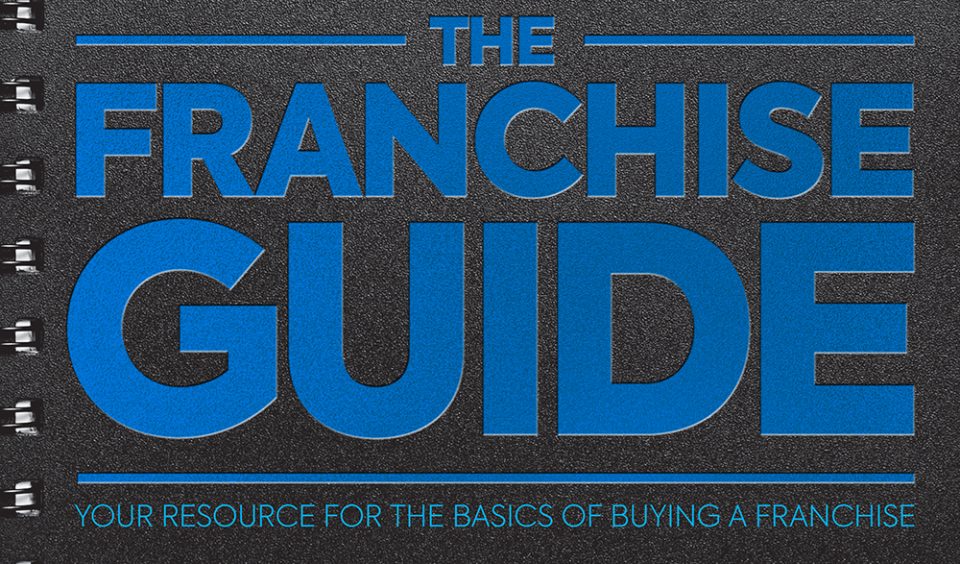As you look to start your franchising venture, you’ll want to enlist the help of trusted advisors who can provide guidance along your entrepreneurial journey. While your friends and family can be key advisors, it’s also important to work with franchise professionals, including a franchise banker.
At the Franchise Canada Show in Toronto this past February, Mike Marshall, Senior Director, Business Banking with CIBC, outlined how working collaboratively with your banker can be an asset as you grow your franchise business.
Here are the key learnings from his “Your Banker: Not Just a Source of Funding” presentation:
Everyone needs trusted advisors
A trusted advisor is a company or individual that’s given a seat at the customer’s table. Instead of being just another vendor or potential vendor, an advisor is a strategic partner that the customer considers an asset to reach their goals.
A business owner often feels like they need to wear many hats and, to a certain extent, that’s true. Surrounding yourself with trusted resources, however, can make the responsibility more manageable and less lonely. Trusted advisors include:
- Accountants
- Lawyers
- Other franchisees
- Your franchisor
- Friends
- Your banker
When do you talk to your banker?
Most business owners choose not to ask their bank for money to fund their business plans because:
- Fear of rejection
- Complexity of process
- Requirements for information/documents
- No relationship or confidence that bank is on their side
Working with your banker: A case study
A past client example illustrates how working with your banker can provide positive results:
Steve’s business is a franchise of a national HVAC banner. In business for five years, Steve has focused mainly on residential systems and clients. Recently, a competitor with a commercial component to their business closed, and Steve saw an opportunity for new clientele, new business, and higher-profit projects.
At this point, there are two ways for Steve to proceed.
Scenario 1
Steve knows his business and has spotted an opportunity. He talks to his accountant and his staff about branching into commercial HVAC and everyone agrees to proceed. Six months into the new market segment, Steve realizes that this business is different than the one he’s known, specifically:
- The inventory required to complete the jobs is more costly, takes longer to get, and clients won’t wait for lengthy delivery dates
- Commercial clients don’t pay quite as quickly as residential clients so he’s waiting longer for his money
- He has had to purchase new equipment to complete the jobs
- Staffing requirements are different. Jobs often need to be completed overnight.
Impacts from Scenario 1
Steve’s expansion into the commercial market has brought additional sales. In fact, sales are trending at almost double last year’s pace. Steve’s financial position, specifically his cash position, has changed dramatically. There is now a shortage of cash because more money has been allocated to inventory; sales don’t turn into cash as fast; cash reserves bought trucks, welders, etc.; and there are days when he fears he won’t make payroll.
Steve needs help, but cash reserves are depleted, working capital is reduced and doesn’t cover obligations, and the profit hasn’t really been seen yet.
Scenario 2
Steve knows his business and has spotted an opportunity. He talks to his accountant, his staff, another franchisee who is doing commercial business, and his banker three-to-six months before starting into the new opportunity, and everyone agrees he should proceed.
The banker now understands Steve’s opportunities and is prepared for the challenges that come with it. They have also worked with Steve and his accountant to forecast the actual cash flow requirements, and have suggested some changes to make the current operation more efficient.
Impacts from Scenario 2
Six months into the new market, the business experiences the same challenges as in Scenario 1, except:
- Nobody in the Trusted Advisor Circle is surprised
- Advice has been given to make the current business more efficient, thus lessening some of the impacts on cash positions
- A borrowing facility (eg. line of credit) was put in place to help fund this new business
As a result, Steve’s financial position is much improved: cash has been sourced to fund inventory, receivables and additional expenses, and Steve can keep up with his payables, especially his payroll.
Steve got the help he needed, along with the comfort in knowing that all of the trusted advisors agreed with the new direction.
In this scenario, your banker has played an important role in your success.
Finding a good banker
The times when you choose a bank based on its location should be over. A good banker should bring value and you should be willing to travel to get that value.
A good banker will:
- Be genuinely interested in you and your business. They will want to know what will make you successful and how they can contribute to your success
- Adopt your ambitions and try to make them a reality
- Provide advice … even when the advice is contrary to your plans or not what you want to hear. You want a banker as an advisor, not an order taker
- Utilize all of the resources and expertise present at that bank. Beware of the advisor who doesn’t introduce you to others at the bank
- Keep things simple and eliminate as much red tape as possible
Advice for business owners
Choose a banker you can trust and who you can involve in your planning and in realizing your ambitions. You should have difficult discussions early, particularly ones dealing with growth or change, upcoming challenges, and retirement or succession. You should also work smarter, not harder – use the innovative solutions provided by the bank so you can spend less time on banking and more time on what’s important.
Mike Marshall
Senior Director, Business Banking
CIBC
Mike.Marshall@cibc.com


